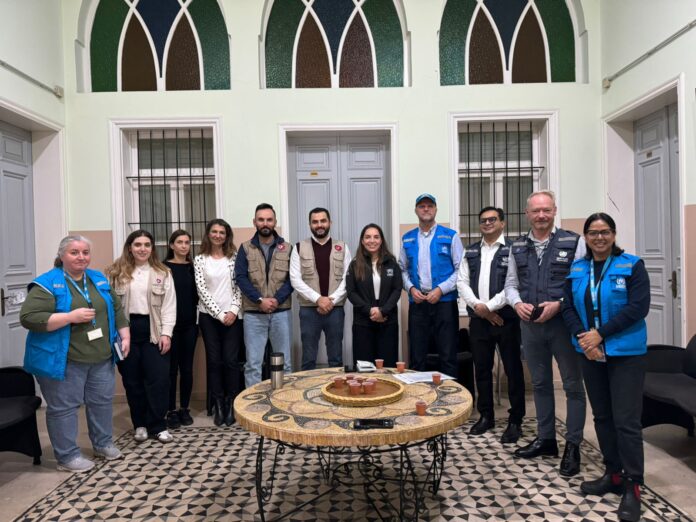In an ongoing effort to enhance Lebanon’s humanitarian response and ensure displaced persons access essential rights, including primary healthcare, a delegation from the United Nations High Commissioner for Refugees (UNHCR) visited a shelter managed by Amel Association International. The delegation included Mr. Ivo Freijsen, UNHCR Representative in Lebanon, Ms. Stephanie Laba, Inter-Agency Coordination Officer at UNHCR, Ms. Zinia Sultana, Public Health Officer at UNHCR, Dr. Mohammad Shajib, WHO Health Sector Coordinator, and Mr. Maher El Tawil, Health Sector Co-Coordinator from Amel Association.
The visit, held at the Women Empowerment Center in Beirut, aimed to assess the situation of displaced persons, identify urgent needs, and emphasize the importance of coordinated humanitarian efforts. Amel Association, which manages the center, supports hundreds of displaced families through programs focused on protection, healthcare, and relief services.
During the visit, the delegation engaged with center staff, displaced persons, and healthcare providers to discuss challenges and explore sustainable solutions. The discussions underscored the critical need for coordination among humanitarian partners to align services with community needs and maximize available resources.
As a key health sector co-lead in Lebanon, Amel Association highlighted the necessity of a unified approach to addressing the increasing needs of displaced populations. With a network of centers across Lebanon and 24 Primary Healthcare Satellite Units (PSUs), Amel collaborates closely with the Ministry of Public Health to deliver essential healthcare services, particularly to vulnerable populations in remote areas like Hasbaya and Tyre.
This field visit is part of a broader effort to strengthen humanitarian coordination in Lebanon. Regular engagements by key stakeholders play a vital role in aligning efforts, ensuring service continuity, and fostering solidarity. By working together, humanitarian organizations can provide Lebanon’s most vulnerable communities with the support they need to rebuild their lives.


 Creative Commons Attribution 4.0 International license
Creative Commons Attribution 4.0 International license